Have we really blitzed through a quarter of the century already? 25 years is so long in fashion terms that some trends have already come back around again (frightening for those of us who hoped the diamanté belt and low-slung jeans era was a fever dream). But how did fashion shape our lives over this first quarter? Here’s how we wore it.
(Image credit: Getty Images)
We saw in the millennium (no bugs!) in hip-hugging boot-cut jeans and skimpy, sparkly going-out tops from Jane Norman and Kookai. Over in L.A., Jennifer Lopez wore a jungle-print Versace number and created a whole new movement—not just for scene-stealing red carpet moments, although there is that. Fans’ demand to see her in the dress was so rapacious that it prompted Google to create a function that made searching for pictures online easier. And voila, Google Images was born. It prophetically set the tone for the digital visual dominance which would come to frame the age.
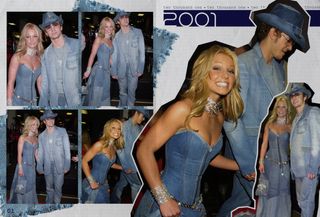
(Image credit: Getty Images)
Britney Spears and Justin Timberlake created a moment for the style annals of all time in their matching head-to-toe denim looks at the 2001 American Music Awards. This was also the year that Juicy Couture released its towelling tracksuit, turning the off-duty look into a serious fashion statement. And then there were the Big Knickers. Thanks, Bridget Jones, for drawing attention to our Spanx.
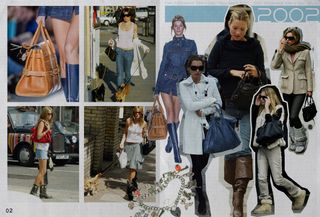
(Image credit: Getty Images)
Bags heavy enough to cause a hernia became the arm candy du jour with the advent of the It-bag era. Balenciaga’s Le City bag was riding high, as was Mulberry’s limited-edition Gisele Bag by Luella Bartley, which might have weighed a tonne but gained elite status nonetheless, paving the way for the Marc Jacobs Stam, Chloé Paddington and YSL Muse.
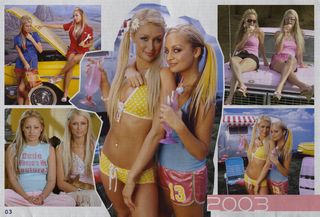
(Image credit: Shutterstock)
The Simple Life aired, thrusting Paris Hilton and Nicole Richie into the limelight. Their Rachel Zoe-styled valley-girl aesthetic—kitschy patterned dresses, giant handbags and even bigger sunglasses, no doubt snapped up at Robertson Boulevard boutique Kitson—went global. That’s hot.
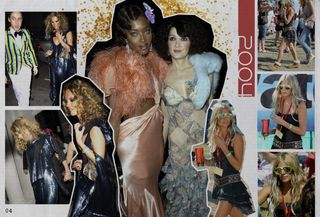
(Image credit: Getty Images; Shutterstock)
Two major mood board additions: Kate Moss threw her The Beautiful and Damned-themed 30th birthday party in a midnight-blue sequin vintage dress, and in June, Sienna Miller was papped at Glastonbury wearing a thick embellished belt slung around her hips with (critical detail) a rolled-down pair of classic UGG boots. On the high street, the era of much-hyped high/low collaborations began with H&M’s first designer collection in partnership with none other than Karl Lagerfeld.
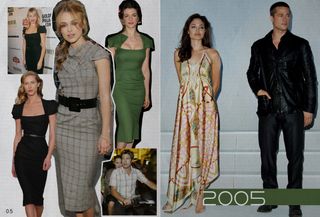
(Image credit: Getty Images)
If you didn’t have a “Team Jen” or “Team Angelina” T-shirt, were you even invested in the cultural movement that was Brangelina? W Magazine’s somewhat scandalous shoot set tongues wagging and the Pitt-Aniston divorce cemented a new ‘Sad Jen” rhetoric from the press. Roland Mouret’s Galaxy Dress ascended to icon status, running the celebrity gamut from Cameron Diaz to, er, Carol Vorderman.
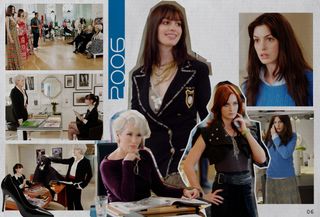
(Image credit: Alamy)
Is that the…? The release of The Devil Wears Prada? Yes, yes it is. We’d never look at a blue jumper the same way again. The lore of fashion magazines was fated in a way that would soon change entirely. Over in Germany, Victoria Beckham and Cheryl Cole led the WAG army in Baden-Baden for the World Cup.
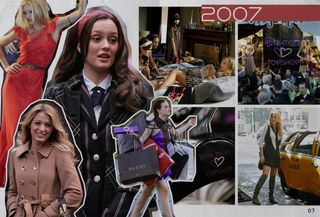
(Image credit: Getty Images; Alamy)
Cool Britannia was flying again with the rise of London’s newest cohort of agenda-setting, provocative designers—see Christopher Kane, Erdem, Jonathan Saunders and Giles Deacon. Couldn’t afford it? Who cared; Kate Moss For Topshop was here, and many a cult dress was born. On the small screen, we were split between Mad Men’s retro looks and Gossip Girl‘s preppy chic, whilst Naomi Campbell did community service in Dolce & Gabbana, naturally.
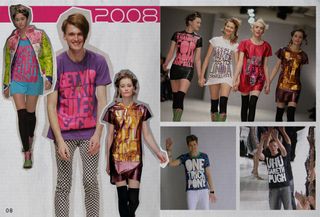
(Image credit: Getty Images; Shutterstock)
Henry Holland brought back the slogan T-shirt with fashion-insider wit—”Get Yer Freak On Giles Deacon” and “UHU Gareth Pugh” encapsulated the colourful nu-rave fun-riot happening in the capital at the time. Over in Paris, Balmain unveiled its flashy sharp-shouldered power jackets. Gwyneth Paltrow launched Goop and athleisure started to take hold.

(Image credit: Getty Images)
A decade of insane shoes reached its zenith with Dior’s caged shoe-boot and YSL’s Tribute platform sandal. But not long after, Phoebe Philo wiped the slate clean with her first minimally minded collection for Celine, bringing a more sober mood to the post-crash world. Bloggers started their controversial ascent in fashion land, with 13-year-old Tavi Gevinson on the Marc Jacobs front row.
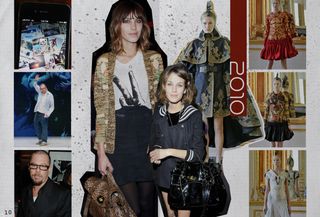
(Image credit: Getty Images)
The fashion world was in mourning after Alexander Lee McQueen’s death at just 40. A month later in March, his final collection of 16 looks completed by his team was shown to selected press in Paris. Later that year, history was made with the launch of Instagram in October. In London, Alexa Chung continued her It girl reign by inspiring a wildly popular namesake bag created by Mulberry, whilst in New York, Leandra Medine started a blog that came to define the medium, Man Repeller.
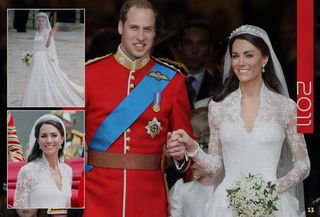
(Image credit: Getty Images)
Pretty much anything else was overshadowed by royal-wedding fever as Kate and Wills got married in Westminster Abbey, with the freshly appointed Sarah Burton of Alexander McQueen on dress duties.
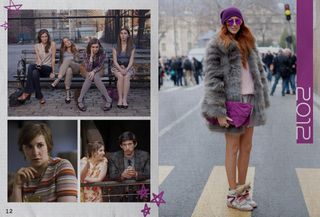
(Image credit: Getty Images; Shutterstock; Alamy)
After Sex and The City’s highly decorative female character tropes came Lena Dunham’s altogether messier Girls. We were also very busy saving up for Isabel Marant’s now-iconic wedge sneakers—so wrong they were right? Ditto Celine’s fur-covered pumps and sandals. “Fugly chic” was here.
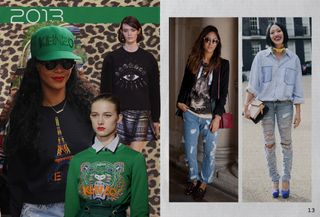
(Image credit: Getty Images)
Splattered, brightly coloured or super-distressed—if your jeans weren’t pimped out, you needn’t bother. Haute sweatshirts moved into the limelight too, with luxury iterations coming via Opening Ceremony’s Carol Lim and Humberto Leon’s tenure at Kenzo.
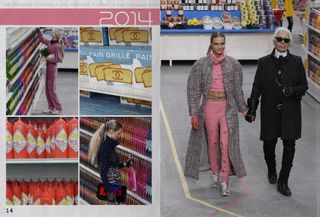
(Image credit: Getty Images)
Karl Lagerfeld raised the bar of runway-show spectacles with his immortal concept of the Chanel supermarket, where every single item from doormats to ketchup was branded with that double-C monogram. But against his ripped tracksuits, a shift was coming. Enter deliberately-boring normcore and millennial pink, which saturated the scene via Glossier’s four debut (sell-out) products.
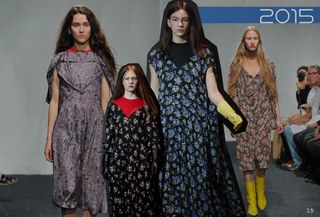
(Image credit: Getty Images)
Demna Gvasalia’s Vetements project became fashion’s greatest disrupter, upending the scene with his nu-punk attitude. It was shrewd, too; his riff on prim floral dresses were street style catnip and set a trend for the rest of the decade. Stan Smiths took off as the white trainer that everyone wore with everything.
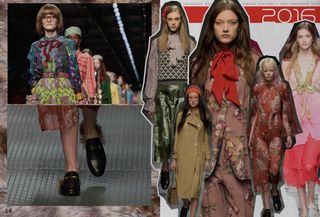
(Image credit: Getty Images)
Alessandro Michele’s Gucci gave maximalists something to lust after, with the classic Princetown loafer getting a backless, fur-lined glow-up. Clothes were starting to get loose as Levi’s classic 501 cut had a resurgence, as did big puffer-jackets, oversized and glammed-up with embellishments thanks to Demna at Balenciaga.
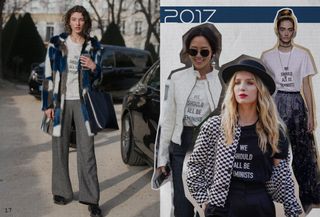
(Image credit: Getty Images; Shutterstock)
In Hollywood, the MeToo movement began, with celebrities spearheading the Time’s Up organisation on the red carpet. Maria Grazia Chiuri cemented her intent at Dior with the creation of T-shirts emblazoned with the title of Chimamanda Ngozi Adichie’s essay We Should All Be Feminists. Ashley Graham covered British Vogue in a win for fashion’s embrace of a more body-positive period.

(Image credit: Getty Images)
Wedding bells in Windsor as Harry and Meghan tied the knot, and the bride wore Clare Waight Keller’s Givenchy. The Queen went to her first fashion show, presenting Richard Quinn with the first Queen Elizabeth II Award. Meanwhile, The Vampire’s Wife Falconetti dress was gaining cult status, and evil got a fashion glow-up when Villanelle wore a hot-pink Molly Goddard number in BBC hit Killing Eve.
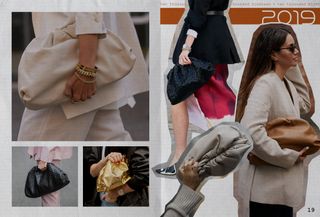
(Image credit: Getty Images; The Style Stalker)
Did you want it? Did you have it? Zara’s £40 black-and-white polka-dot dress was the item of the summer, with (of course) its very own Instagram account celebrating its many, many fans. At the other end of the market, Daniel Lee’s Bottega Veneta makeover was gaining pace thanks to his punchy Pouch bag, which was named by The Lyst Index as the world’s most wanted product at the time. Oh, and Katie Holmes wore a cashmere bra and matching cardigan by Khaite, breaking the internet with her dose of cosy cool and introducing the term “bradigan”.
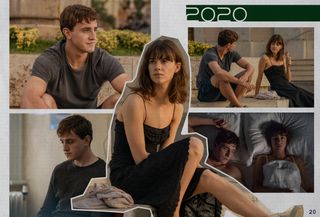
(Image credit: Alamy)
Tiger King, Normal People (hello, Connell’s chain), Pangaia tracksuits and Crocs came to define the Era of Inside as we did, well… nothing, save stay in and watch telly. It wasn’t all bad (I mean, it was, a bit); if we got really bored, there was always knitting the Harry Styles JW Anderson cardigan to keep us occupied.
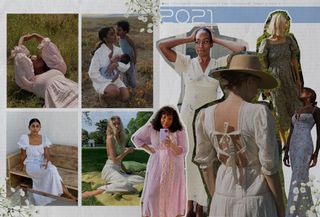
Still in the midst of the pandemic, we were feeling very bucolic, and cottagecore entered the chat. If a frock wasn’t tiered with a healthy dose of smocking, we didn’t want to know. In January, the erstwhile mecca that was Topshop Oxford Circus closed its doors. Meanwhile, The Simpsons made their runway debut at Balenciaga.
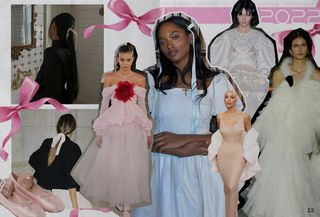
Kim Kardashian had long cemented her position as queen of the Met Gala, but her turn in Marilyn Monroe’s iconic “naked” dress (worn originally to serenade JFK on his birthday in 1962) caused a huge commotion and kickstarted social media’s obsession with Kardashian’s alleged Ozempic use, with so many people buying off-market that stocks of the semaglutide injection intended for diabetics started to run low. Balletcore was popular, as was a lust for all things Y2K.
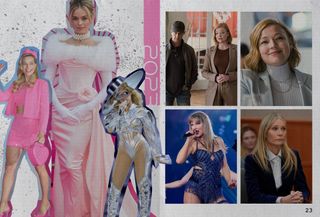
(Image credit: Getty Images; Alamy)
Gwyneth Paltrow’s “stealth wealth” appearances in a Utah courtroom set the tone for a year full of ludicrously capacious fashion trends. For those bored of Succession beige, Barbie burst onto the scene just in time to saturate the world in 219C pink. If that wasn’t enough, Beyoncé turned silver de rigueur thanks to her tour-style edict, whilst Swifties were busy whipping up their friendship bracelets and DIY Eras Tour outfits. Exhausting.
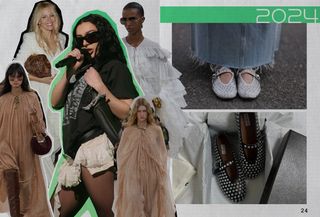
(Image credit: Getty Images; Launchmetrics)
Alaïa’s reinvigoration by Pieter Muller has turned the humble ballet flat into a cult item. If you haven’t managed to get your hands on a pair of his (£790) crystal-covered flats, you no doubt have a knock-off version. Chemena Kamali brought back boho over at Chloé ,cemented by Sienna Miller’s first M&S collection which included, of course, a coin belt. And then there was Brat, which turned into a year-defining movement that gave license to let loose.
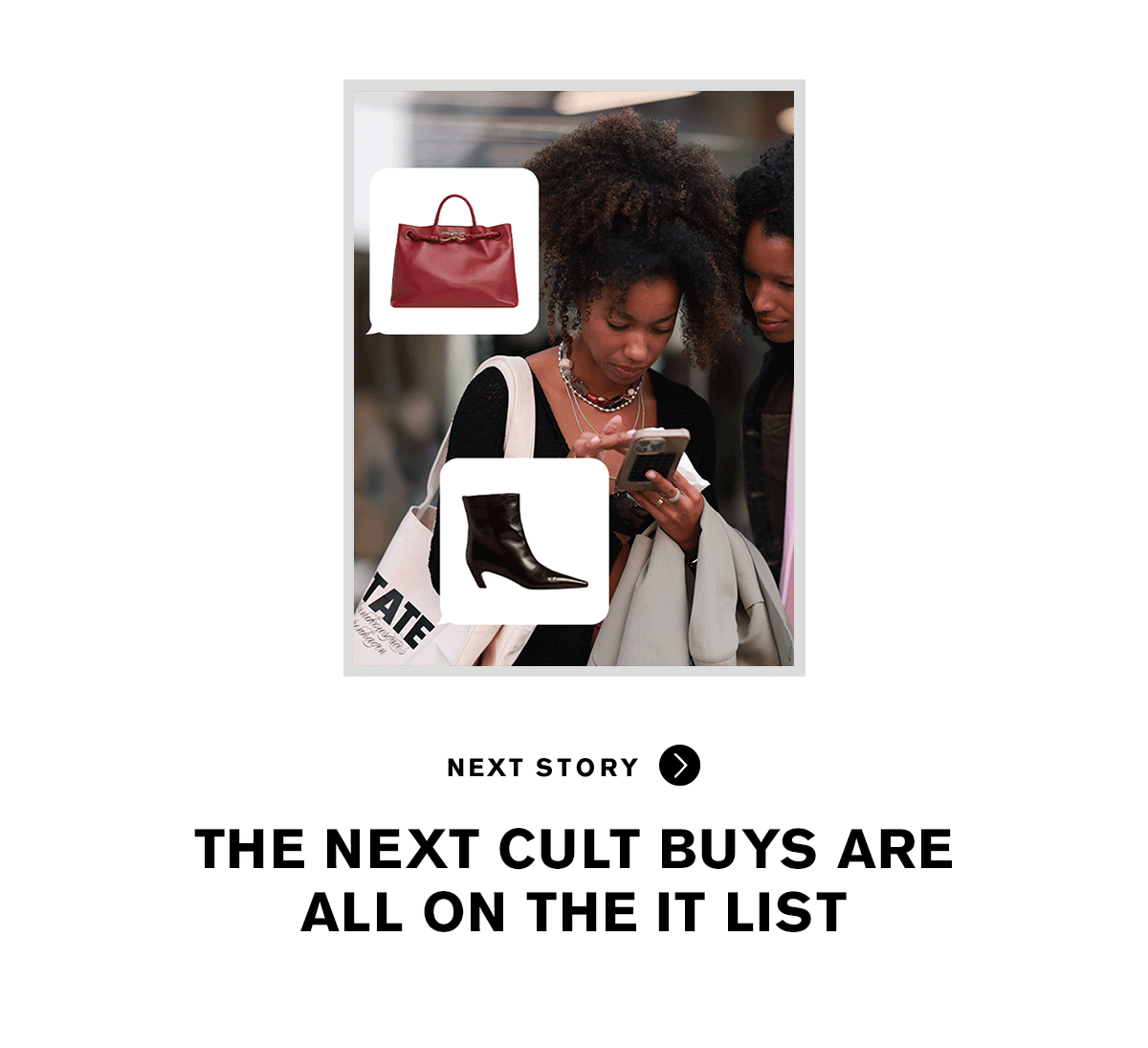
(Image credit: Future)














